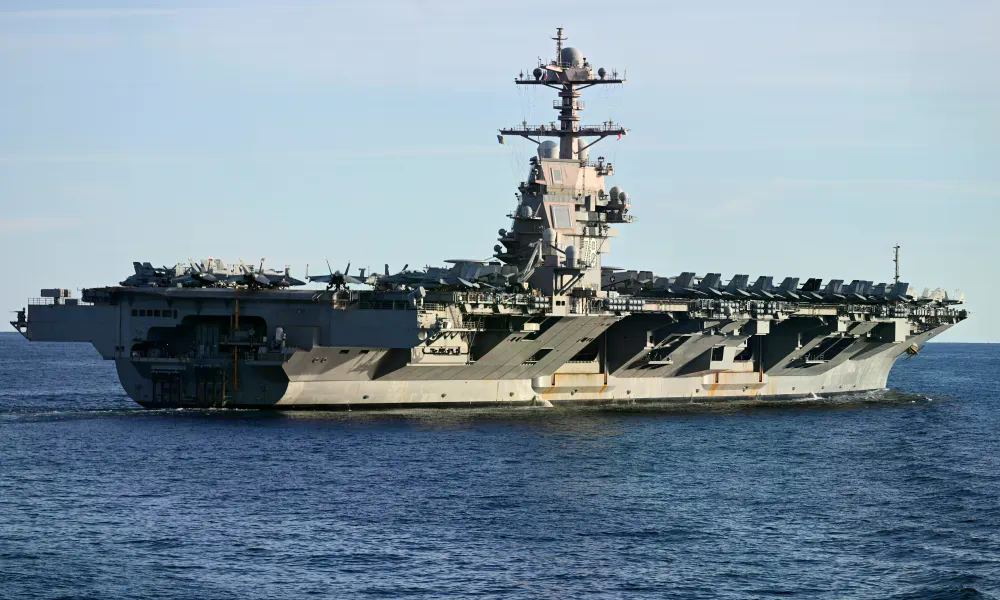
The United States has announced the deployment of an aircraft carrier strike group to Latin America, marking a significant increase in its military presence in the region. This move has raised concerns amid speculation about potential actions against the Venezuelan government.
A spokesperson for the U.S. military confirmed on Friday that Secretary of Defense Pete Hegseth ordered the USS Gerald Ford and five accompanying destroyers to deploy to Latin America. The deployment is intended to enhance the United States’ capacity to detect, monitor, and disrupt illicit activities that could threaten regional security.
“The enhanced U.S. force presence in the USSOUTHCOM AOR will bolster U.S. capacity to detect, monitor, and disrupt illicit actors and activities that compromise the safety and prosperity of the U.S. homeland and our security in the Western Hemisphere,” said Pentagon spokesperson Sean Parnell in a social media statement.
This deployment exceeds previous U.S. objectives focused on countering drug trafficking and signals a more assertive stance toward Venezuela, which has long been a target of U.S. criticism. Currently, approximately 6,000 U.S. sailors and Marines are stationed in the region aboard eight warships. The arrival of the USS Gerald Ford and its strike group, along with an additional 4,500 personnel, will significantly expand this presence. The carrier is currently in the Mediterranean Sea, and the timeline for its arrival in Latin America remains unclear.
Recent statements from former President Donald Trump have further heightened tensions. He authorized the Central Intelligence Agency (CIA) to conduct operations in Venezuela and suggested that attacks on Venezuelan territory may follow. The administration has used the claim that the Maduro government is collaborating with criminal groups to “invade” the U.S. through drug trafficking and immigration as a justification for these actions.
However, Venezuela plays a limited role in the global drug trade, and internal U.S. intelligence assessments have found little evidence supporting the assertion that the Maduro government controls such groups. Since early September, the U.S. has conducted a growing number of military strikes on vessels it claims are transporting drugs from Venezuela, often without credible evidence. International observers, including UN officials and legal scholars, have criticized these strikes as violations of both U.S. and international law, labeling them as extrajudicial killings.
In response to the escalating tensions, the Maduro government has warned of a strong reaction to any attempt to overthrow its leadership. Foreign Minister Vladimir Padrino stated, “Interpret it however you want: the Armed Forces will not allow a government here that is subservient to the interests of the United States.” He added, “This is the most significant military threat in the last 100 years. We do not want war, we want peace.”
Despite calls for de-escalation, the U.S. has not shown signs of reducing its military posture. When asked about reports that Maduro had offered concessions, former President Trump appeared dismissive of the possibility.


